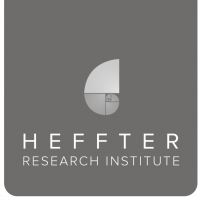17 Aug 2021 NEWSLETTER

2021 NEWSLETTER
Heffter supporters,
First, there have been changes at Heffter since our last newsletter. Carey Turnbull has succeeded George Greer as President. George has retired as Medical Director and is now Board Chair. Dave Nichols is Vice-President, and all three make up the Heffter Executive Committee.
Our new Director of Research is Steven Grant, PhD, who joins us after 25 years at the National Institute on Drug Abuse, where he was Chief of the Clinical Neuroscience Branch and managed the scientific review of research proposals, which he will be doing for Heffter.
Katrin Preller, PhD, is our new Chief Scientist, working with Steven to select independent reviewers for all our proposals. Steven and Katrin will also be providing their own reviews.
See more about Steven and Katrin by clicking on their photos here.
I want to express my and everyone’s collective appreciation for all that Heffter has accomplished over the past 28 years. We are beginning to see research initiatives on psychedelics by the National Institutes of Health (NIH), University Centers, and a realistic vision of prescription medicine status for classic psychedelic medicine – all things made possible by the vision of those of you who founded Heffter so many “brief” years ago.
New Government Support for Psychedelic Research by Congress, NIH and Texas Legislature
There are significant developments that we need to be aware of as major shifts are occurring at a policy level. These politicians and officials are now encouraging psychedelic research in large part because Heffter Research Institute founders stood up and began what they have accomplished so much.
The US House of Representatives (will soon) pass the fiscal year 2022 Labor, Health and Human Service Appropriations bill. The (original unedited) bill included committee report language in which the “…Committee encourages NIH and other relevant Federal agencies to undertake, and where appropriate expand, research to evaluate the effectiveness of psychedelic therapies in treating PTSD, major depressive disorder, and other serious mental health conditions.”
The House Appropriations Committee’s actions demonstrate the committee’s support for psychedelic research and its commitment to addressing the growing problem of mental health in the United States. Federal Agencies will review this language and keep the committee’s priorities in mind when considering and awarding funding for research grants and projects.
At a recent Senate Committee hearing, the NIH Director, Dr. Francis Collins, responded to a question about psychedelics by stating his agency should consider establishing a working group to review existing research of psychedelic treatment for mental health issues and help develop protocols for the next series of clinical trials.
The state of Texas recently enacted a law, which would establish a partnership at Baylor College of Medicine, which would study psilocybin treatment for PTSD and review additional literature on the potential benefits of psychedelic treatments.
Heffter grantee Ben Kelmendi at Yale just received an $800,000 NIH career grant to research psilocybin to treat OCD, the first NIH grant of that sort since 1967.
Heffter Achievements
Heffter’s largest-ever clinical trial, the NYU Alcohol Use Disorder study of psilocybin treatment, is finished and publication is next. Its impact will rival that of the Heffter sponsored depression and anxiety studies published by researchers Roland Griffiths and Stephen Ross in Dec 2016.
The Heffter Young Investigator Program is in the process of selecting its first grant recipients.
The Usona Institute is breaking ground on a new campus in Madison, WI. Land has been secured and funds for building a state of the art campus for psychedelic research are in hand. Ground breaking was Aug 3, with a projected ribbon cutting to move in two years from now, Spring 2023. This is due to the vision and leadership, as well as profound generosity, on the part of Heffter board member Bill Linton, joined by other generous funders. The campus will be a permanent home for research and development of psychedelic compounds and therapies.
The founding of the Johns Hopkins Center for Psychedelic Research, the new NYU Center for Psychedelic Medicine, and the initiation of the Usona Institute project to achieve FDA approval of psilocybin for medical treatment, are deeply gratifying to everyone at Heffter, having been instrumental in mentoring and funding the work that led up to those profound institutional developments.
Read about the JHU Center’s progress on their paradigm changing psilocybin research here, directed by Heffter board member Roland Griffiths.
Harvard Medical School is embarking on their first human trials using psilocybin in about 60 years, and it is a Heffter reviewed and funded trial. That kind of accomplishment requires management that is good at the long game.
At Yale University, Heffter-reviewed and -funded trials researching psilocybin to treat headache disorders, depression, and Obsessive Compulsive Disorder continue apace. Neurologist Emmanuelle Schindler recently published her Heffter reviewed and funded trial with novel findings showing psilocybin useful in treating migraine.
Heffter Board Member Cody Swift continues to do us all proud with the substantive contribution he continues to make to the Native American Church’s right to use and access to peyote; an activity catalyzed by a very early Heffter grant that Heffter Co-Founder Jerry Patchen inspired.
Heffter Board members Carey (yes me) and Claudia Turnbull have founded two corporations to work to create prescription medicines from the results of the Heffter trials at NYU using psilocybin to treat alcoholism, and at Yale using psilocybin to treat both headache disorders and OCD. Those are B.More Inc, a non-profit named after Claudia’s brother Brett Moore who died of a drug overdose 50 years ago, and Ceruvia Lifesciences (formerly CH TAC). Making Heffter’s research on classic psychedelics into prescription medicines is no longer a distant dream.
Covid restrictions have slowed but not stopped our Heffter funded research, and I wanted to take this opportunity to keep everyone up to date. Just as it seemed we were getting back to normal the Delta variant seems to be making life difficult again.
Stay healthy everyone!
Carey Turnbull
Board Member and President

